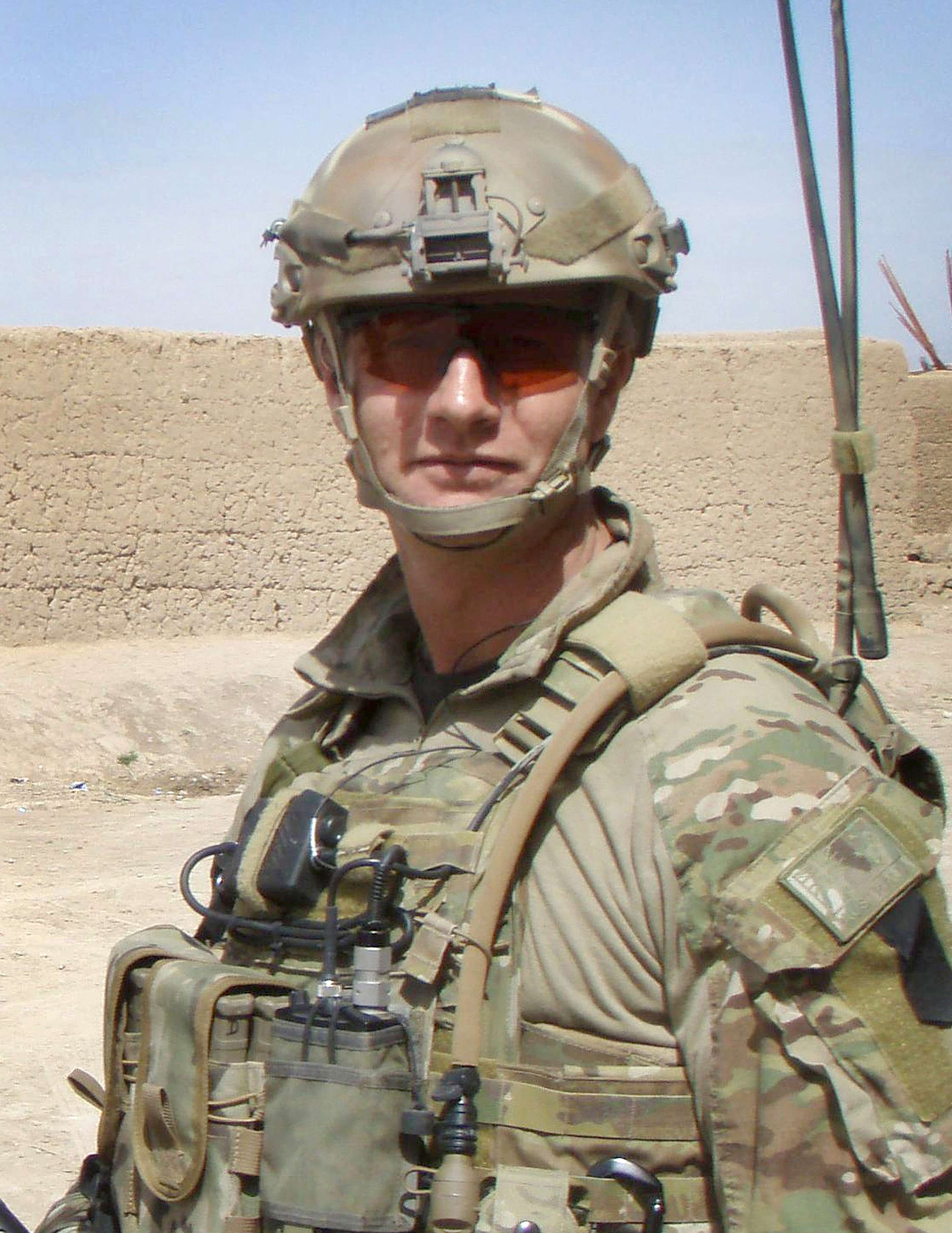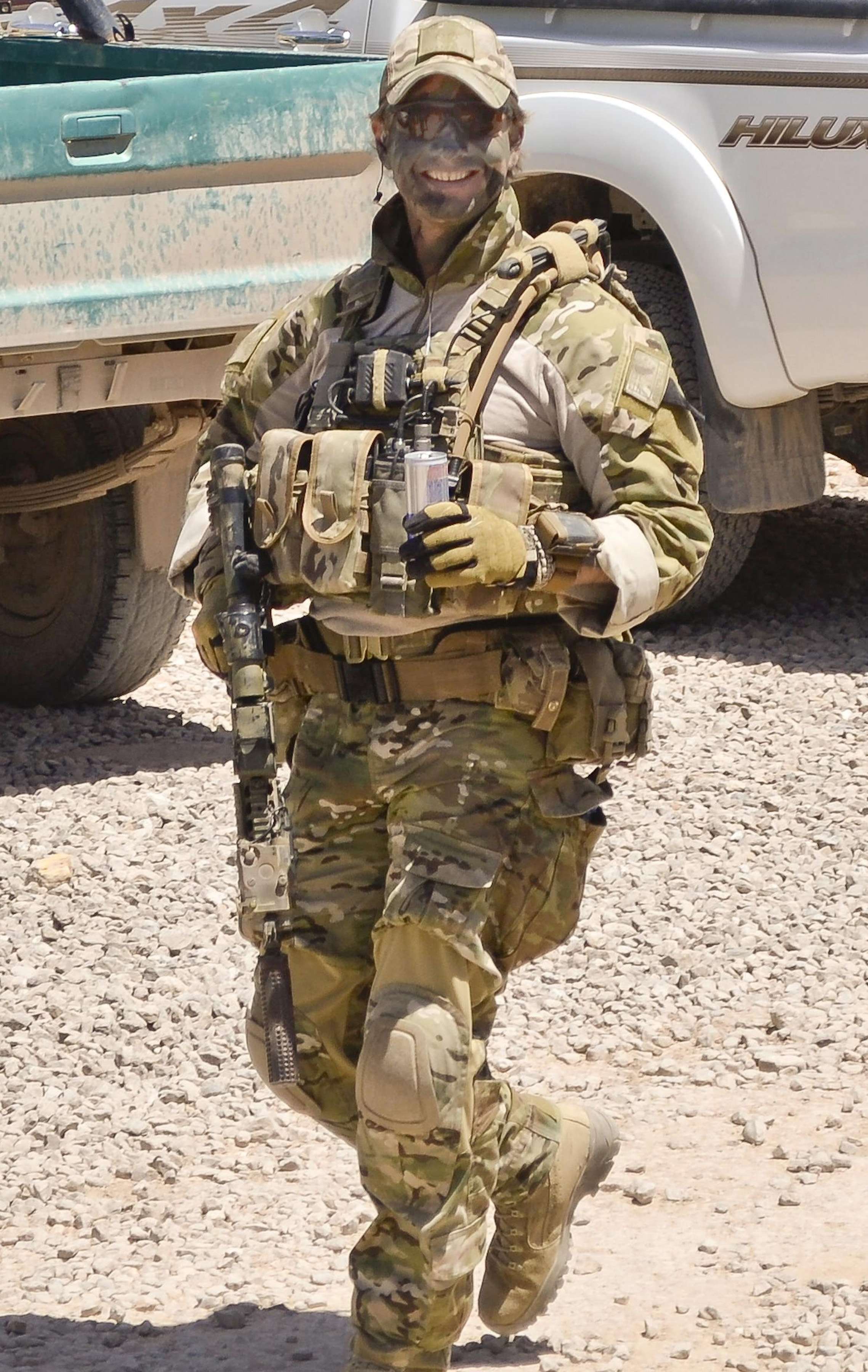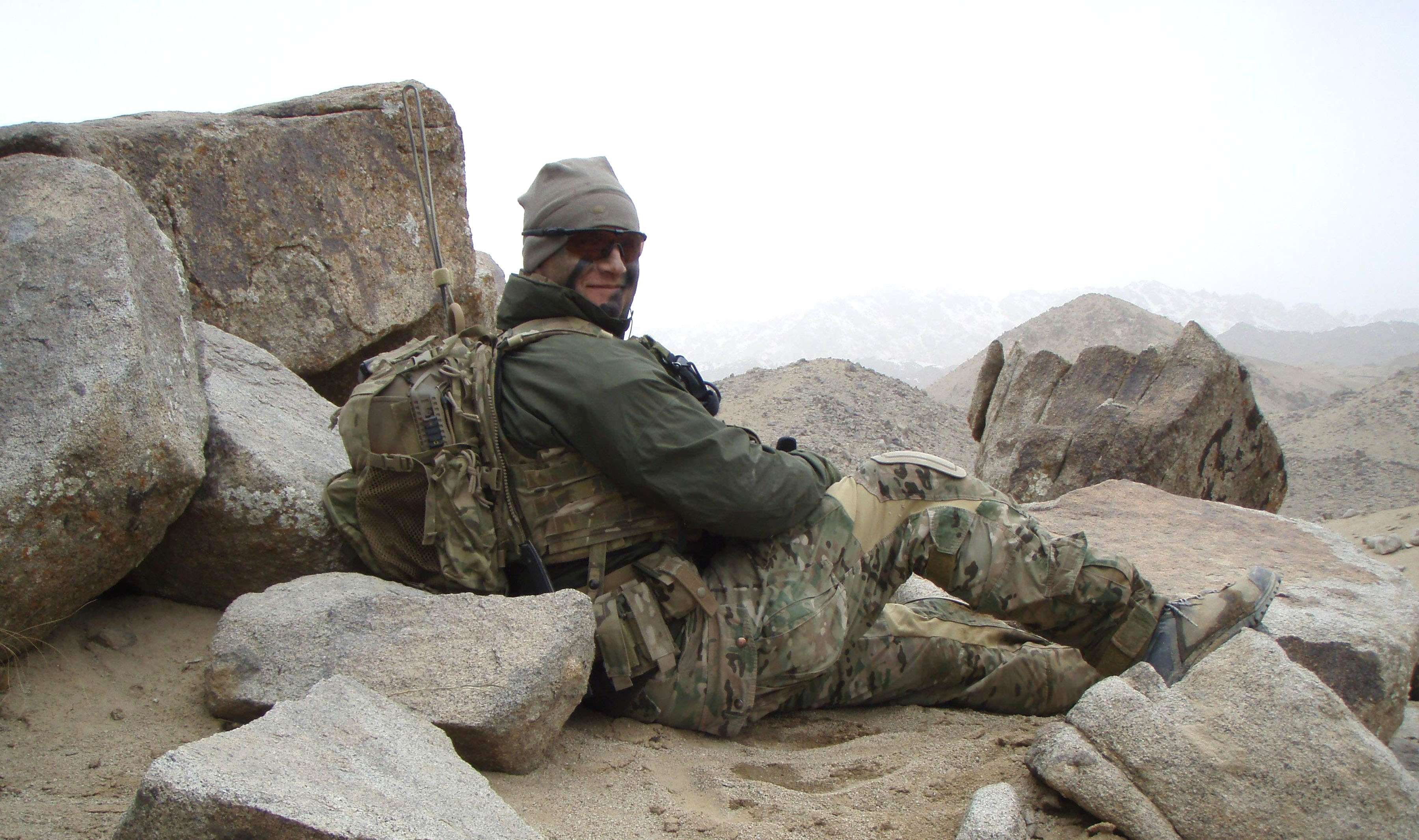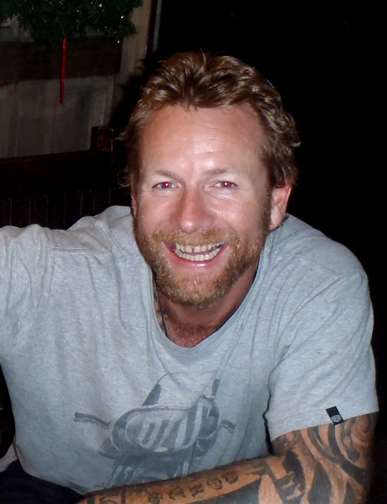http://www.abc.net.au/news/2012-07-03/sas-veteran-shot-dead-in-chora-valley/4106174
An SAS soldier who was on his seventh tour of duty in Afghanistan has been shot dead during a firefight with insurgents in the south of the country, the Defence Force has announced.
The 40-year-old Perth-based soldier was shot in the chest yesterday morning while on a partnered mission with the Afghan national security forces to target an insurgent commander in Uruzgan's Chora Valley.
He was evacuated by helicopter to the Australian base at Tarin Kot but later died.
Defence Force Chief David Hurley said the man was wearing protective body armour but was shot as his patrol was "inserted" by helicopter at the beginning of the mission.
He said the man's family had been notified but had asked that he not be named at this stage.
But he said the man was viewed by his colleagues as a "soldier's soldier".
"His colleagues describe him as a highly professional operator who earned great respect within the special operations community over many years of service," General Hurley said during a press conference with Prime Minister Julia Gillard in Darwin this morning.
He said the dead man joined the Army in 1990 and joined the SAS in 1995.
"This man was a soldier's soldier and I know that the members of the Special Operations Task Group will ensure his service and sacrifice will not be forgotten."
"While this is a blow for all of us, it will be felt most deeply by this soldier's family and friends," Ms Gillard added.
"For his family, they have had news overnight that is the most shocking and distressing news that a family could ever receive. My condolences go to them."
Opposition Leader Tony Abbott has described the dead soldier as a "warrior" who has paid the highest possible price in the service of his country.
"We mourn his passing, we grieve with his friends, with his family [and] with his comrades," Mr Abbott told reporters in Darwin.
General Hurley has described it as "unusual" for one soldier to have been on seven rotations of active service in Afghanistan, and says he has spoken with the Chief of Army about the issue this morning.
"About this time last year, when I took over as the Chief of the Defence Force, I raised my concerns about frequency of tours [and] had that examined," he said.
"I'm confident that the management processes are in place in terms of the psychological management of members of the SAS.
"But it's an issue we need to keep a sharp eye on," General Hurley said.
The man is the first Australian soldier to be killed in Afghanistan this year, and the 33rd Australian soldier to be killed in the country.
Ms Gillard says Australia remains committed to continuing the mission in the war-torn country despite the latest death.
"For many Australians when they hear this news, they will ask themselves again: why are we in Afghanistan, why do we continue to fight there, why do we continue to see these losses in Afghanistan?"
"We went there to make sure that Afghanistan would not continue to be a safe haven for terrorists.
"That continues to be our mission which has a defined purpose and a defined timeline.
"So we will continue our mission in Afghanistan even as we grieve this loss," Ms Gillard said.
Mr Abbott says that mission will continue to have strong bipartisan support.
"This is an important cause," he said. "Our soldiers in Afghanistan are fighting for our interests and our values and they deserve the respect of the Australian people."
An SAS soldier who was on his seventh tour of duty in Afghanistan has been shot dead during a firefight with insurgents in the south of the country, the Defence Force has announced.
The 40-year-old Perth-based soldier was shot in the chest yesterday morning while on a partnered mission with the Afghan national security forces to target an insurgent commander in Uruzgan's Chora Valley.
He was evacuated by helicopter to the Australian base at Tarin Kot but later died.
Defence Force Chief David Hurley said the man was wearing protective body armour but was shot as his patrol was "inserted" by helicopter at the beginning of the mission.
He said the man's family had been notified but had asked that he not be named at this stage.
But he said the man was viewed by his colleagues as a "soldier's soldier".
"His colleagues describe him as a highly professional operator who earned great respect within the special operations community over many years of service," General Hurley said during a press conference with Prime Minister Julia Gillard in Darwin this morning.
He said the dead man joined the Army in 1990 and joined the SAS in 1995.
"This man was a soldier's soldier and I know that the members of the Special Operations Task Group will ensure his service and sacrifice will not be forgotten."
"While this is a blow for all of us, it will be felt most deeply by this soldier's family and friends," Ms Gillard added.
"For his family, they have had news overnight that is the most shocking and distressing news that a family could ever receive. My condolences go to them."
Opposition Leader Tony Abbott has described the dead soldier as a "warrior" who has paid the highest possible price in the service of his country.
"We mourn his passing, we grieve with his friends, with his family [and] with his comrades," Mr Abbott told reporters in Darwin.
General Hurley has described it as "unusual" for one soldier to have been on seven rotations of active service in Afghanistan, and says he has spoken with the Chief of Army about the issue this morning.
"About this time last year, when I took over as the Chief of the Defence Force, I raised my concerns about frequency of tours [and] had that examined," he said.
"I'm confident that the management processes are in place in terms of the psychological management of members of the SAS.
"But it's an issue we need to keep a sharp eye on," General Hurley said.
The man is the first Australian soldier to be killed in Afghanistan this year, and the 33rd Australian soldier to be killed in the country.
Ms Gillard says Australia remains committed to continuing the mission in the war-torn country despite the latest death.
"For many Australians when they hear this news, they will ask themselves again: why are we in Afghanistan, why do we continue to fight there, why do we continue to see these losses in Afghanistan?"
"We went there to make sure that Afghanistan would not continue to be a safe haven for terrorists.
"That continues to be our mission which has a defined purpose and a defined timeline.
"So we will continue our mission in Afghanistan even as we grieve this loss," Ms Gillard said.
Mr Abbott says that mission will continue to have strong bipartisan support.
"This is an important cause," he said. "Our soldiers in Afghanistan are fighting for our interests and our values and they deserve the respect of the Australian people."




